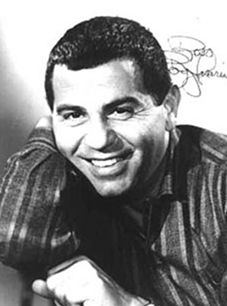[flv:http://www.dograt.com/Movies/Wordpress/DEC06/HELP.flv 400 300]
Previously I offered studio take 6 of the Beatles’ “I Feel Fine.” The audio player has takes 1 through 5 of “HELP!” The vocals weren’t introduced until take 9.
[audio:http://www.dograt.com/Sounds/Wordpress/DEC06/Helptake1.mp3,http://www.dograt.com/Sounds/Wordpress/DEC06/Helptake2.mp3,http://www.dograt.com/Sounds/Wordpress/DEC06/Helptake3.mp3,http://www.dograt.com/Sounds/Wordpress/DEC06/Helptake4.mp3,http://www.dograt.com/Sounds/Wordpress/DEC06/Helptake5.mp3]John considered this song to be a personal breakthrough, because it was a sincere cry for help. For all of the Beatles trivia I’ve picked up over the years, I’ve never seen confirmation of my suspicion that the song title HELP! was inspired by a magazine cover, as discussed here.
I’d like to offer a scan of the picture sleeve to the original single, as well as the single itself, but it’s in the possession of Mr. Dennis F. Rogers; so, instead, you can watch the Beatles performing the song on TV. This is from the last Ed Sullivan show ever broadcast in black and white. It’s fitting, I suppose, as this is, I imagine, the very last appearance of the Beatles in their Fab Four incarnation. “Rubber Soul” was released in December, and it was obvious to everybody that the times, they were a changin’.

One other piece of trivia I can pass along is that the man sitting at the control console on Tuesday, April 13, 1965, engineering the recording of HELP! was Norman Smith. He later had a hit single of his own, on the charts in late 1972. Some may consider it silly fluff, but I’ve always loved this song. Perhaps you remember it?
[audio:http://www.dograt.com/Sounds/Wordpress/DEC06/OhBabe.mp3]
 One item today that caught my interest is about American music labels pushing to get European copyright laws changed. As my buddy Dennis Rogers recently pointed out, the 50-year limit on copyrighted material in Europe means there’s a flood of CD’s headed our way from overseas from the era of Elvis and beyond. He predicts the laws will change when the Beatles’ material nears the 50-year mark.
One item today that caught my interest is about American music labels pushing to get European copyright laws changed. As my buddy Dennis Rogers recently pointed out, the 50-year limit on copyrighted material in Europe means there’s a flood of CD’s headed our way from overseas from the era of Elvis and beyond. He predicts the laws will change when the Beatles’ material nears the 50-year mark.
 I’m not a huge Jazz fan. Somewhere along the line, for my taste Jazz became so much about improvisation there wasn’t enough structure left to hang onto. Sunday evenings there’s a radio show on WGBH in Boston I enjoy, called The Jazz Decades, hosted by Ray Smith, who by now must be in his 80’s. He specializes in music from the 20’s and 30’s, playing both original recordings from then, as well as more recent renditions of old songs. When necessary, Smith resorts to vinyl, as he did tonight.
I’m not a huge Jazz fan. Somewhere along the line, for my taste Jazz became so much about improvisation there wasn’t enough structure left to hang onto. Sunday evenings there’s a radio show on WGBH in Boston I enjoy, called The Jazz Decades, hosted by Ray Smith, who by now must be in his 80’s. He specializes in music from the 20’s and 30’s, playing both original recordings from then, as well as more recent renditions of old songs. When necessary, Smith resorts to vinyl, as he did tonight. Being the once-upon-a-time radio guy that I am, some of the doings in the broadcasting business interest me. I have a more than casual appreciation of Classical music, although I would not call myself a connoisseur, by any means. There are two Classical music stations in Boston — WGBH 89.7 FM and WCRB, which from 1954 until today (Friday) was at 102.5 FM. WGBH is a public station, named after the Great Blue Hill. WCRB stands for Charles River Broadcasting, and it’s a commercial station.
Being the once-upon-a-time radio guy that I am, some of the doings in the broadcasting business interest me. I have a more than casual appreciation of Classical music, although I would not call myself a connoisseur, by any means. There are two Classical music stations in Boston — WGBH 89.7 FM and WCRB, which from 1954 until today (Friday) was at 102.5 FM. WGBH is a public station, named after the Great Blue Hill. WCRB stands for Charles River Broadcasting, and it’s a commercial station. His name was Ross Bagdasarian, but he called himself David Seville. When I was a kid I wished my voice could sound like his.
His name was Ross Bagdasarian, but he called himself David Seville. When I was a kid I wished my voice could sound like his.